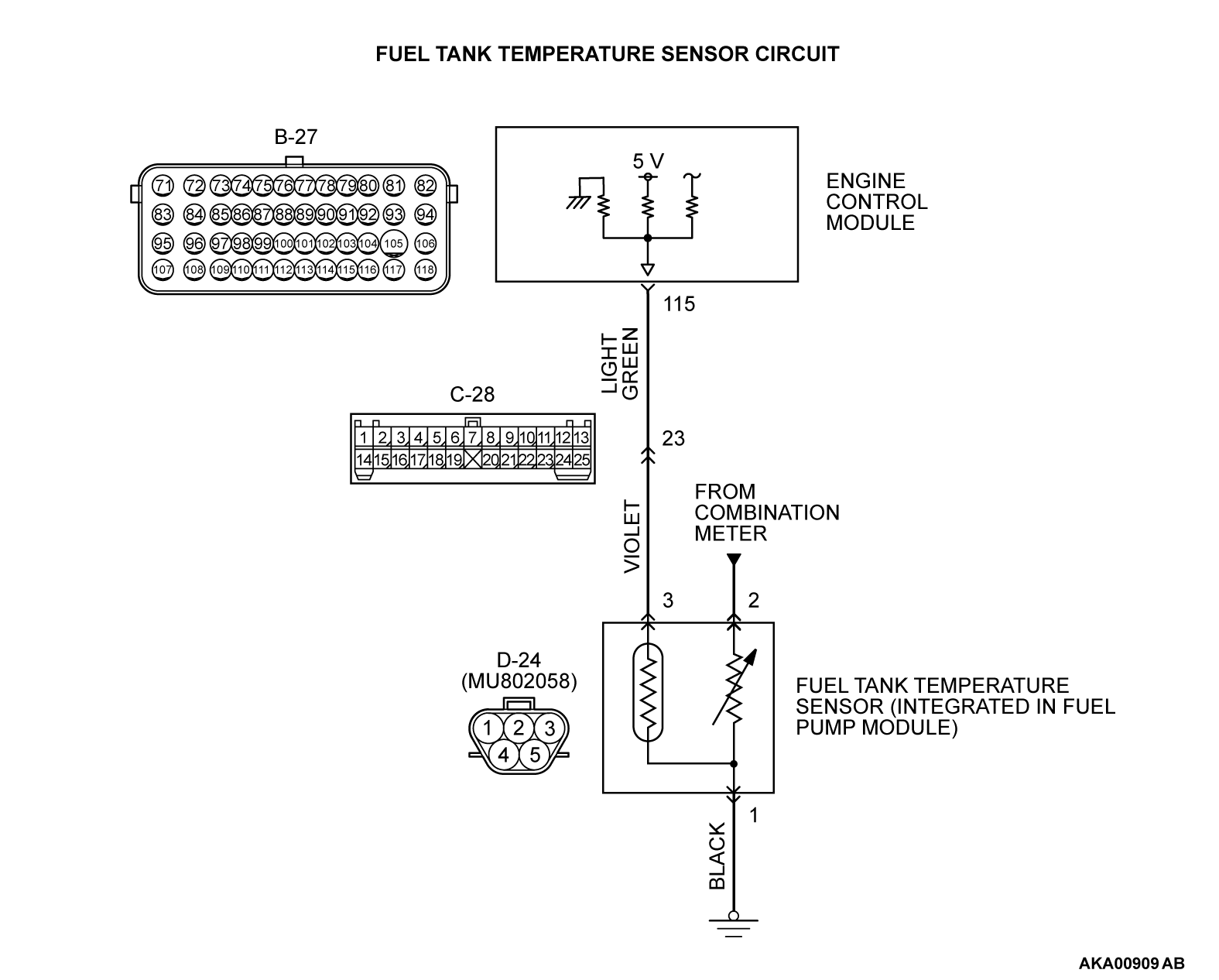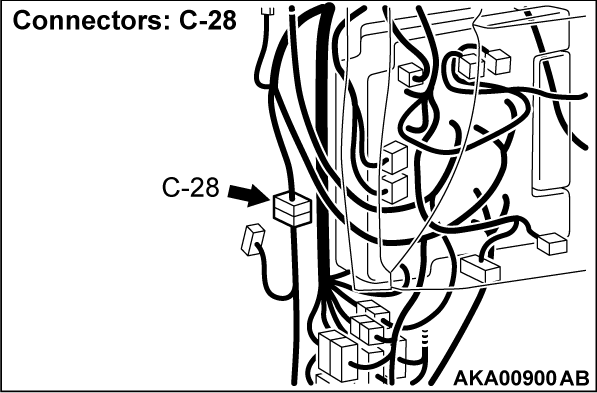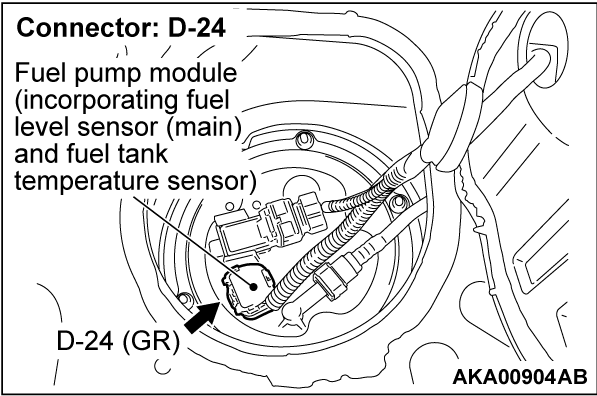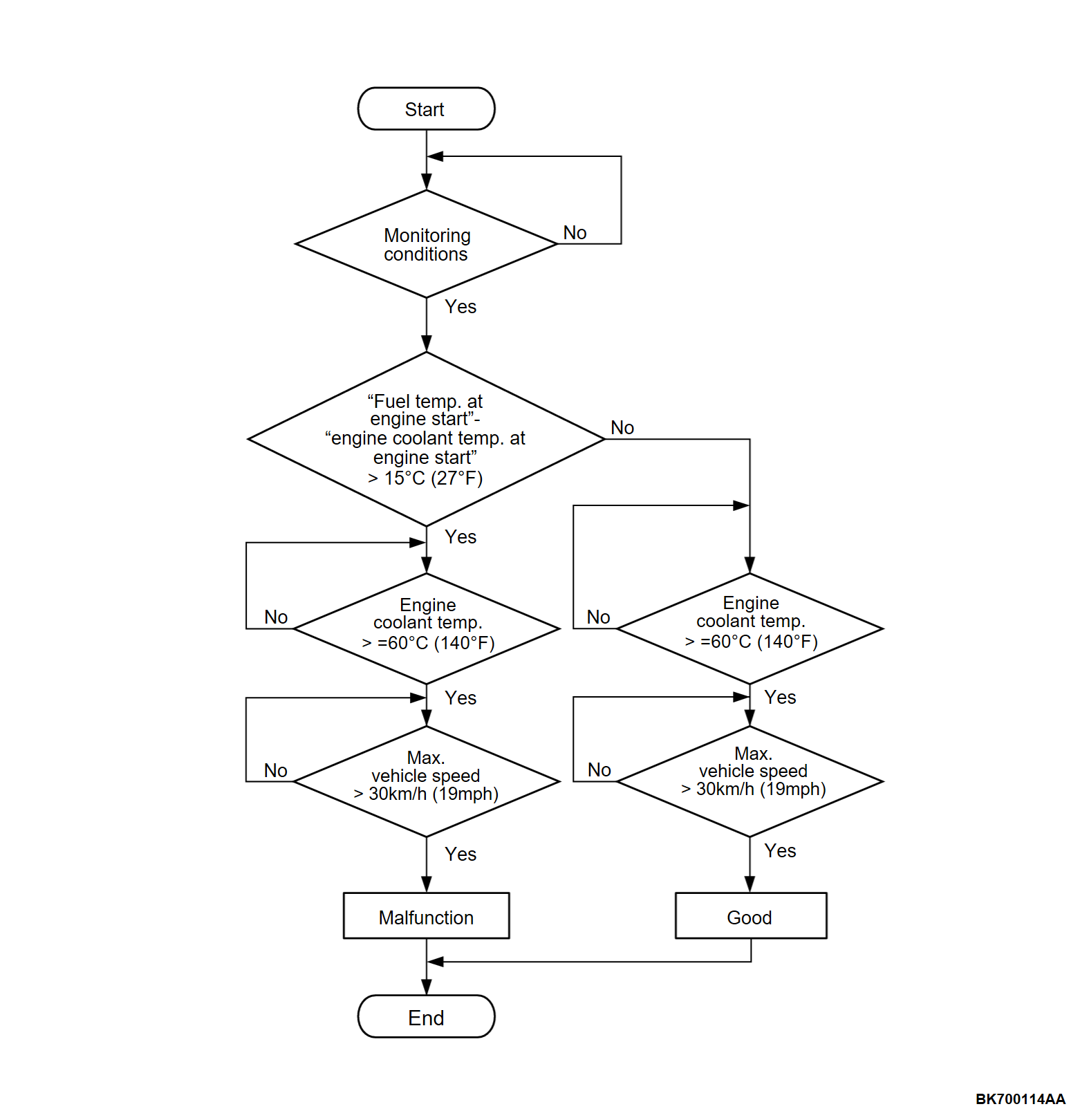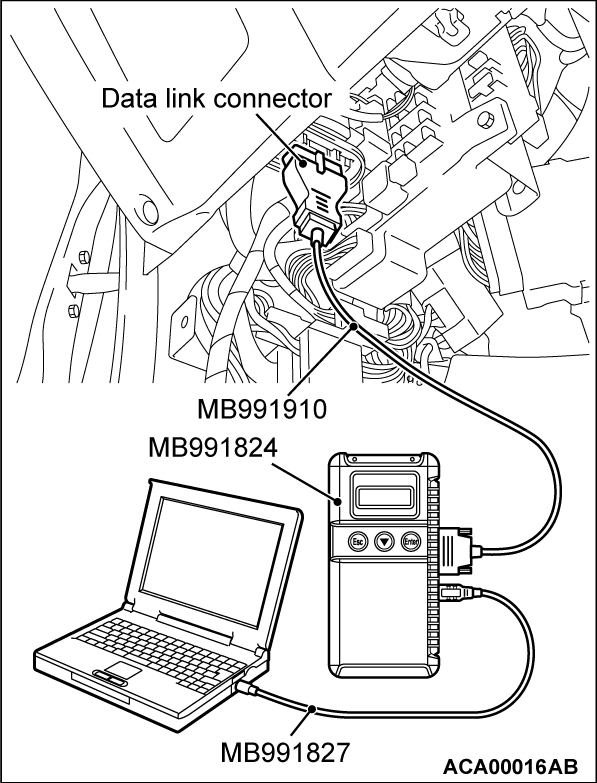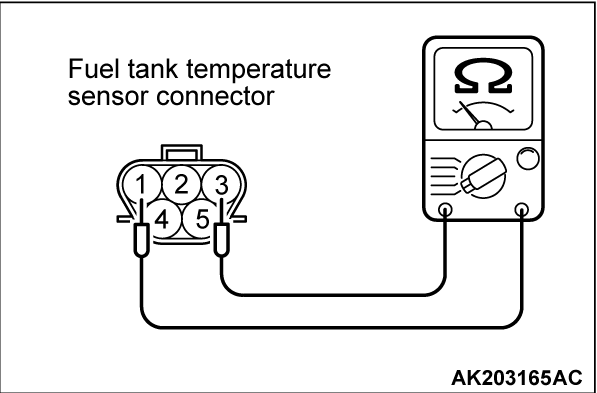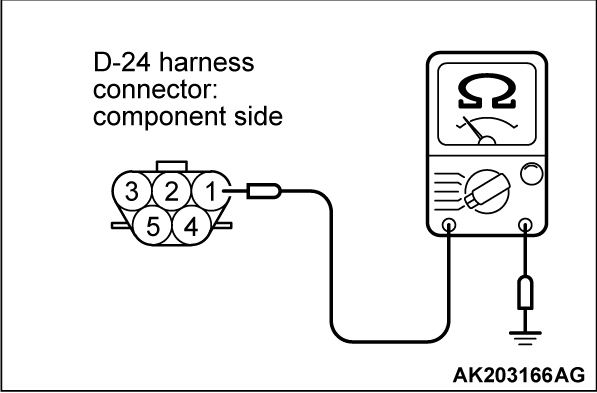DTC P0181: Fuel Tank Temperature Sensor Circuit Range/Performance
CIRCUIT OPERATION
- 5-volt voltage is applied to the fuel tank temperature sensor output terminal (terminal No. 3) from the ECM (terminal No. 115) via the resistor in the ECM.
- The fuel tank temperature sensor output voltage increases when the resistance increases and decreases when the resistance decreases. The ground terminal (terminal No. 1) is grounded to the vehicle body.
TECHNICAL DESCRIPTION
- The fuel tank temperature sensor converts the fuel tank temperature to a voltage.
- The ECM detects the fuel tank temperature with this output voltage.
DESCRIPTIONS OF MONITOR METHODS
- Fuel tank temperature at engine start is higher than engine coolant temperature at engine start by specified value when engine is cold start condition.
MONITOR EXECUTION
- Continuous
MONITOR EXECUTION CONDITIONS (Other monitor and Sensor)
Other Monitor (There is no temporary DTC set in memory for the item monitored below)
- Not applicable
Sensor (The sensor below is determined to be normal)
- Engine coolant temperature sensor
- Intake air temperature sensor
Check Conditions
- When the engine is started, the intake air temperature subtracted from the engine coolant temperature is less than 5°C (9°F).
- The engine coolant temperature is between -10°C (14°F) and 36°C (97°F) when the engine is started.
- The engine coolant temperature is more than 60°C (140°F).
- Maximum vehicle speed is more than 30 km/h (19 mph) after the engine starting sequence was completed.
Judgment Criterion
- When the engine is started, the engine coolant temperature subtracted from the fuel tank temperature is more than 15°C (27°F).
FAIL-SAFE AND BACKUP FUNCTION
- None
TROUBLESHOOTING HINTS (The most likely causes for this code to be set are:)
- Fuel tank temperature sensor failed.
- Fuel tank temperature sensor circuit harness damage or connector damage.
- ECM failed.
| note | A diagnostic trouble code (DTC) could be output if the engine and the radiator have been flushed repeatedly when the engine coolant temperature was high (or the fuel tank temperature was high). Because this is not a failure, the DTC must be erased. Make sure to test drive the vehicle in accordance with the OBD-II drive cycle pattern in order to verify that a DTC will not be output. |
DIAGNOSIS
Required Special Tool:
- MB991958: Scan Tool (M.U.T.-III Sub Assembly)
- MB991824: V.C.I.
- MB991827: USB Cable
- MB991910: Main Harness A
STEP 1. Using scan tool MB991958, check data list item 53: Fuel Tank Temperature Sensor.
| caution | To prevent damage to scan tool MB991958, always turn the ignition switch to the "LOCK" (OFF) position before connecting or disconnecting scan tool MB991958. |
(1) Connect scan tool MB991958 to the data link connector.
(2) Turn the ignition switch to the "ON" position.
(3) Set scan tool MB991958 to the data reading mode for item 53, Fuel Tank Temperature Sensor.
- Approximately the same as the ambient air temperature when the engine is cooled.
(4) Turn the ignition switch to the "LOCK" (OFF) position.
Is the sensor operating properly?
STEP 2. Check harness connector D-24 at fuel pump module for damage.
Is the harness connector in good condition?
STEP 3. Check the fuel tank temperature sensor.
(1) Disconnect the fuel pump module connector D-24.
(2) Measure the resistance between terminal No. 1 and No. 3 of the fuel pump module.
Standard value: 0.5 - 12.0 kΩ
Is the measured resistance between 0.5 and 12.0 kΩ?
STEP 4. Check the continuity at fuel pump module harness side connector D-24.
(1) Disconnect the connector D-24 and measure at the harness side.
(2) Check for the continuity between terminal No. 1 and ground.
- Continuity (2 ohms or less)
Does continuity exist?
STEP 5. Check harness connector B-27 at ECM for damage.
Is the harness connector in good condition?
STEP 6. Check for harness damage between fuel pump module connector D-24 (terminal No. 3) and ECM connector B-27 (terminal No. 115).
| note | Check harness after checking intermediate connector C-28. If intermediate connector is damaged, repair or replace it. Refer to GROUP 00E, Harness Connector Inspection  . Then go to Step 8. . Then go to Step 8. |
Is the harness wire in good condition?
STEP 7. Using scan tool MB991958, check data list item 53: Fuel Tank Temperature Sensor.
(1) Turn the ignition switch to the "ON" position.
(2) Set scan tool MB991958 to the data reading mode for item 53, Fuel Tank Temperature Sensor.
- Approximately the same as the ambient air temperature when the engine is cooled.
(3) Turn the ignition switch to the "LOCK" (OFF) position.
Is the sensor operating properly?
![[Previous]](../../../buttons/fprev.png)
![[Next]](../../../buttons/fnext.png)
